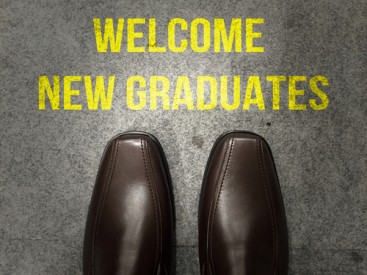Soft Skills – Importance Explained
You’ve the technical expertise and experience for the position – but do you possess the soft skills that businesses are looking for?
‘Many applicants see hard skills as appropriate and soft skills as ‘good to have’ or less important. The contradiction, obviously, is that many most difficult tasks are accomplished by using well-crafted soft skills like convincing, guiding and negotiating’ we at JRG Partners are firm believers of this thought and clearly understand the importance of soft skills.
Although one may not give much thought to one’s soft skills, businesses value these more higher than we may realize.
‘With many sectors experiencing skills shortages, most organizations are ready to coach individuals for the technical skills they desire – but they cannot ‘teach’ soft skills since these are produced through experience,’ says Emma Sue Prince, author of The Advantage: The 7 Soft Skills You Need to Stay One Step Ahead.
Exactly how do you persuade an employer that you’ve the soft skills they might be looking for?
Utilize your CV to share a narrative
When it comes to crafting an effective CV, it’s essential to remember that simply labeling yourself as hardworking, passionate, or a good team player is no longer enough to stand out. These are qualities that almost every candidate will claim, making them generic and less impactful if not backed up by concrete examples. What truly distinguishes one candidate from another is how they present their soft skills in a way that resonates with potential employers.
Emma Sue, an expert in career coaching, emphasizes the importance of demonstrating soft skills through your CV. “It’s the way you write about your soft skills within your CV that’ll distinguish you from other people,” she says. This means that rather than just stating that you possess certain qualities, you should illustrate how you’ve applied these qualities in real-world situations. By doing so, you provide evidence of your abilities and give employers a clearer picture of what you bring to the table.
The Importance of Tailoring Your CV
One of the first steps in effectively presenting your soft skills is to tailor your CV to the specific role you’re applying for. Each job has unique requirements, and it’s crucial that your CV reflects how you meet those needs. This goes beyond listing your job duties and responsibilities; it involves showing how your skills and experiences align with the job description and the company’s culture.
For instance, if a job posting emphasizes teamwork and collaboration, it’s not enough to simply mention that you’re a team player. Instead, you should include examples of how you’ve successfully worked within a team to achieve specific goals. Perhaps you led a project that required input from various departments, and you coordinated the efforts of the team to ensure the project was completed on time and within budget. By providing such examples, you’re not only claiming to be a good team player, but you’re also proving it with evidence from your professional history.
Telling a Story Through Your CV
Another key aspect of making your CV stand out is the ability to tell a story. “You will want to adapt your CV for the role you are trying to get, making certain you demonstrate that you fulfill the job requirements, and tell a story of who you are,” advises Emma Sue. The story you tell should be one that potential employers can relate to, one that makes you memorable as an individual rather than just another candidate.
Think of your CV as a narrative that guides the reader through your career journey. Start with a strong personal statement that sets the tone for who you are as a professional. This statement should encapsulate your core values, your career aspirations, and what makes you uniquely qualified for the role. From there, each section of your CV should build on this narrative, with your work experience, education, and skills all contributing to the overall story.
For example, if you’re applying for a role that requires strong leadership skills, your CV should highlight moments in your career where you’ve demonstrated leadership. Perhaps you managed a team through a challenging period, implemented new strategies that improved efficiency, or mentored junior colleagues who have since moved on to successful careers. These anecdotes not only show that you have leadership experience, but they also make your CV more engaging and memorable.
The Power of Achievements and Real-Life Encounters
Achievements and real-life encounters are critical components of a compelling CV. Rather than simply listing your job responsibilities, focus on what you’ve achieved in each role. This could be in the form of awards, recognitions, or measurable outcomes that resulted from your efforts. For instance, instead of saying, “Managed a team of sales professionals,” you might say, “Led a team of 10 sales professionals to achieve a 20% increase in annual revenue, surpassing company targets by 15%.”
When you include real-life encounters in your CV, you’re providing context for your achievements. This helps potential employers see not just what you did, but how you did it, and under what circumstances. For instance, if you were able to turn around a struggling department, explain the challenges you faced, the steps you took to address those challenges, and the results you achieved. This level of detail gives employers insight into your problem-solving abilities and your capacity to thrive in difficult situations.
Connecting with Potential Employers
Ultimately, the goal of your CV is to connect with potential employers on a deeper level. By telling a story, showcasing your achievements, and providing real-life examples, you make it easier for employers to envision you in the role. They can see how your past experiences have prepared you for the challenges of the position and how your soft skills will enable you to succeed.
Moreover, a well-crafted CV that highlights your soft skills and achievements demonstrates that you’ve taken the time to understand what the employer is looking for and that you’ve thoughtfully presented yourself as the best candidate for the job. This attention to detail can set you apart from other candidates who may have similar qualifications but haven’t taken the same care in crafting their CV.
However what if you’re a new graduate with minimal work experience?
Most young individuals possess a wealth of effective soft skills that can significantly enhance their employability, but the key challenge often lies in how these skills are presented. In today’s competitive job market, it’s not enough to simply list these skills on a resume; they need to be strategically highlighted and packaged in a way that aligns with the specific position being applied for. This process begins with tailoring your resume to the job in question, ensuring that it clearly portrays what makes you stand out as a candidate and what drives your professional aspirations.
A well-tailored resume does more than just list your qualifications; it tells a story about who you are as a professional. It should communicate your strong work ethic, determination, communication skills, and ability to work effectively in a team. However, many young job seekers make the mistake of assuming that these qualities can only be demonstrated through formal employment experience. This is far from the truth. Employers are not just looking for paid work experience; they are interested in seeing proof of your capabilities, no matter where they were developed.
For instance, volunteering or community work can be just as valuable as traditional job experience when it comes to showcasing your soft skills. These experiences often involve real-world problem-solving, teamwork, and communication, which are directly transferable to the workplace. For example, if you organized a community event, you likely had to coordinate with others, manage time effectively, and communicate clearly—all of which are skills that employers highly value. Similarly, if you volunteered at a local charity, you may have developed a strong sense of empathy and teamwork, which are crucial in many professional environments.
That being said, it’s important to remember that while your resume should be comprehensive, it shouldn’t be overwhelming. Emma Sue, a career expert, emphasizes the importance of brevity in resume writing. “That doesn’t indicate divulging your life history,” she says. Instead, aim to keep your resume concise, ideally to a couple of pages. A resume that is too lengthy may lose the attention of the reader, especially when employers are often sifting through dozens, if not hundreds, of applications. Focus on the most relevant experiences and skills that match the job you’re applying for, and eliminate any extraneous information that doesn’t add value to your application.
Another critical point Emma Sue highlights is the reality that “CVs hardly get read.” This might sound disheartening, but it underscores the importance of being proactive in your job search. A well-crafted resume is essential, but it’s only one piece of the puzzle. To truly stand out, you need to engage in networking and actively seek out opportunities to connect with potential employers. This could mean attending industry events, joining professional organizations, or even participating in online forums related to your field. The goal is to make yourself known within the industry so that when your resume does cross an employer’s desk, they can put a face to the name.
Networking is particularly crucial for young job seekers who may not have an extensive professional network or years of experience to fall back on. By building connections with people in your desired industry, you can gain valuable insights into what employers are looking for and potentially even get recommendations or introductions that can help you secure a job. Networking isn’t just about meeting people; it’s about building relationships that can open doors for you in the future.
In addition to traditional networking, young professionals should also leverage social media platforms like LinkedIn to enhance their visibility. LinkedIn, in particular, is a powerful tool for showcasing your resume, connecting with industry professionals, and staying informed about job opportunities. Make sure your LinkedIn profile is up to date and reflects the same qualities and experiences highlighted in your resume. Engage with content, join relevant groups, and don’t hesitate to reach out to professionals in your field for advice or mentorship.
Furthermore, following up on job applications is another proactive step that can set you apart from other candidates. After submitting your resume, consider sending a brief follow-up email to express your continued interest in the position and to inquire about the next steps in the hiring process. This shows employers that you are serious about the opportunity and are eager to contribute to their organization.
Lastly, consider the power of a well-crafted cover letter to complement your resume. While some employers may not require a cover letter, it can be a valuable opportunity to elaborate on the experiences and skills listed on your resume and explain why you are particularly suited for the role. A personalized cover letter allows you to connect the dots between your background and the job at hand, making it easier for employers to see how you would fit into their team.
In summary, while young individuals may possess a multitude of valuable soft skills, the challenge lies in effectively packaging and presenting these skills in a way that resonates with potential employers. A tailored resume that highlights relevant experiences, combined with proactive networking and follow-up, can significantly enhance your chances of standing out in a crowded job market. Remember, the goal is not just to get your resume noticed, but to create a lasting impression that sets you apart as a top candidate for the job.
Understand your strong points
 Let’s say you’re struggling to get accounts that reveal your soft skills in action?
Let’s say you’re struggling to get accounts that reveal your soft skills in action?
‘Look for those instances when you say “things just happened … all of it came together right at the last minute”, indicates John. ‘Who made it come together? Whether it was you, how did you get it done? The clue for any skill that has value is the fact that things changed as a result of your participation.
‘Ask someone who watched the event what it was you did, then, consider how you can repose on that experience. Make smarter connections in between the skills you employ outside work and whatever you do best 9-5.
‘Alternatively, narrate to a friend about a time when you did anything important, and request them to write the skills mentioned in your story. Every occasion you can take to get people to remind you of what you do well heightens your self confidence.’
Build your self confidence
Emma Sue in addition emphases the benefits of building confidence. Every little thing, from how you dress up and walk into the room to how you shake the interviewer’s hands, will tell them relating to your soft skills, she says.
‘Concentrate on the gestures, the manner in which you sit and make eye-to-eye contact, and practise “power poses”, as proven by Amy Cuddy, just before you enter the room.’
‘Standing in a posture of self esteem, even when we do not feel confident, affects androgenic hormone or testosterone and cortisol amounts in the human brain and impacts the way we come across,’ she explains.
Listen carefully
During the interview you should constantly be looking for possibilities to tell your story. To do that, you need to “listen really, really well”, claims Emma Sue.
‘the majority of us don’t listen effectively because we’re anxious. Cope with nerves first by making use of confidence-building and relaxation methods and investigating the role and firm.
‘Then, for instance, if your interviewer questions you, “How will you define leadership?” instead of “let me know concerning an occasion you exhibited leadership?” you can easily begin by creating a common statement that answers the query and then launch into your story regardless of whether there’s an invite to tell it.
‘Ultimately, your story probably will be more memorable compared to your philosophy. So, always relate things back to your own experiences. If, they ask in regards to performing in a group or handling complicated projects, associate this to whenever you have had to do that – whether or not that is a voluntary project or anything that challenged you in a certain way.’
Think of and use the STAR Format
Master the skill of storytelling following the STAR layout – Situation, Task, Action and Results.
‘Give a summary of the situation and the task in a minute or less, what measures you took to address the concerns, and then quantify and qualify the outcomes you achieved by using your soft skills,’ clarifies Emma Sue.
‘When organizing for a job interview, therefore, get these stories well prepared and pick those that highlight numerous soft skills – being an effective team player, for example, means balancing cooperation with initiative and leadership in some cases too.
‘Flexibility normally indicates problem-resolving skills and resourcefulness along with being flexible, normally flexible appears like you just go along with the flow!’
Finally, employers want people who happen to be adaptable and can deal with uncertainty. When they ask or toss a curve ball question to you, you will need to think on your feet.
‘Be passionate and positive regardless of what question comes your way. Positive people are the ones that will get ahead as opposed to simply manage,’ states Emma Sue.




